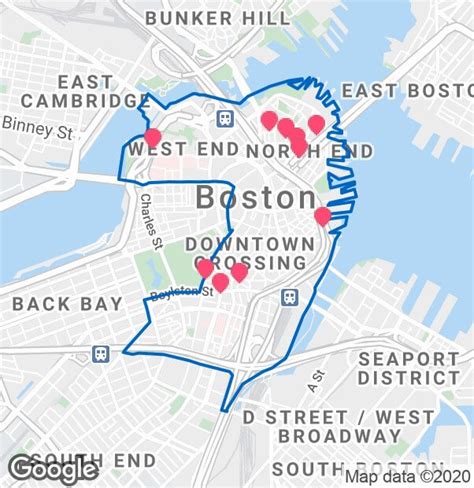When relocating to or visiting Boston, it’s crucial to be informed about the less desirable neighborhoods to ensure a safe and pleasant experience. While Boston boasts many charming and vibrant communities, certain areas should be avoided due to high crime rates, socioeconomic challenges, and substandard living conditions.

Downtown Crossing (Downtown): Be Vigilant at Night
Downtown Crossing, a central business district, transforms into a less welcoming environment after sunset. With a substantial homeless population and high rates of petty crime, including theft and assault, this area requires increased vigilance and caution, especially during evening hours.
South End: Avoid Certain Pockets
While the South End is renowned for its stately brownstones and vibrant nightlife, certain pockets warrant caution. The area around Massachusetts Avenue and Melnea Cass Boulevard has a notorious concentration of drug use, homelessness, and crime, making it a neighborhood to steer clear of.
Roxbury: Focus on Specific Streets
Roxbury is a historically underserved neighborhood with ongoing challenges. While revitalization efforts are underway, certain streets remain problem areas. Dudley Street, known for its high crime rates, and Humboldt Avenue, with its history of gang activity, should be avoided if possible.
Dorchester: Exercise Caution in Certain Enclaves
Dorchester is a diverse and dynamic neighborhood with plenty to offer, but its pockets of crime should be heeded. Focus on avoiding the area around Talbot Avenue and Washington Street, which has recorded high incidents of violent crime and drug activity.
Mattapan: Choose Alternative Routes
Mattapan is a predominantly residential neighborhood with a heavy police presence due to its high crime rates. Residents often report feeling unsafe, and visitors are advised to minimize their time in this area and explore alternative routes if possible.
Tips for Navigating Boston’s Risky Neighborhoods
- Stay Alert: Maintain situational awareness and be vigilant of your surroundings.
- Travel in Groups: Avoid solo ventures into less desirable areas, particularly at night.
- Secure Belongings: Keep valuables hidden and avoid displaying expensive items.
- Use Ride-Hailing Services: When possible, opt for ride-hailing services instead of walking or taking public transportation in high-crime areas.
- Trust Your Instincts: If a situation feels unsafe, remove yourself immediately and report any suspicious activity to the authorities.
Pros and Cons of Living in Boston’s Less Desirable Neighborhoods
Pros:
- Affordable housing options compared to other Boston neighborhoods
- Proximity to amenities and public transportation in some areas
Cons:
- High crime rates, including violent crime, property crime, and drug offenses
- Prevalence of homelessness, drug use, and gang activity
- Deteriorating infrastructure and substandard housing conditions
- Negative impact on quality of life and sense of community
Boston Neighborhood Crime Statistics
According to the Boston Police Department’s 2022 Crime Report:
- Downtown Crossing reported the highest number of larceny and assault offenses in the city.
- Roxbury had the highest concentration of drug-related crimes.
- Dorchester experienced the most incidents of aggravated assault and robbery.
- Mattapan had the highest rate of violent crime per capita among all Boston neighborhoods.
FAQs about Boston’s Neighborhoods to Avoid
Q: Why should I avoid certain Boston neighborhoods?
A: These areas have higher crime rates, socioeconomic challenges, and substandard living conditions that can impact safety and well-being.
Q: Are there any safe areas within these neighborhoods?
A: Yes, certain streets or pockets within these neighborhoods may be safer than others. However, it’s crucial to exercise caution and stay informed about current crime trends.
Q: What should I do if I encounter a dangerous situation in one of these neighborhoods?
A: Remove yourself from the area immediately and report any suspicious activity to the police. Trust your instincts and prioritize safety.
Q: Can I visit these neighborhoods during the day?
A: While daytime visits may pose less risk than at night, it’s still essential to exercise caution and be aware of your surroundings. Avoid isolated areas and refrain from displaying valuables.
Q: What are some resources for staying informed about neighborhood safety in Boston?
A: The Boston Police Department’s website, local news outlets, and community organizations provide up-to-date information on crime trends and safety recommendations.
